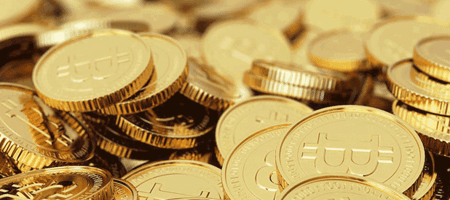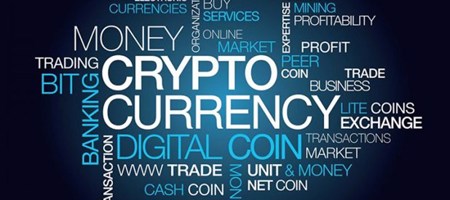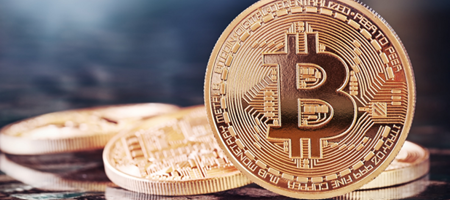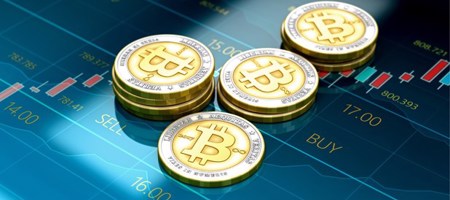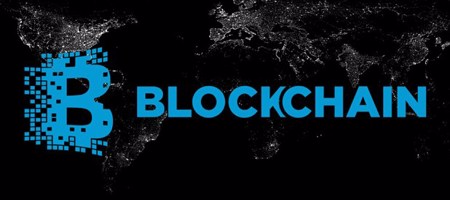The future of work is not only digital. It is decentralised.

The future of work is not only digital. It is decentralised.
Date: 08 Apr 2021
Ever since the advent of the internet it is broadly accepted that we are increasingly transitioning toward a global digital world. The by product of this is that many of us are now working more from home. If the statistics of this work-from-home arrangement is of interest to you then the following link will hit you with some fun datasets: https://www.smallbizgenius.net/by-the-numbers/remote-work-statistics/#:~:text=What%20percentage%20of%20jobs%20are,allow%20remote%20work%20at%20all.
While the proposition of working digitally from home is not lost on many, the implications of working decentralised has yet to be truly realized.
Prototypical dreams of robots, self-driving cars and virtual worlds are fast becoming a reality pulled straight out of a science fiction novel. That may sound like hyperbole, but in the broadest sense there is a category of information technology that simply involves user input into a distributed database that subsequently leads to algorithmically determined output to achieve a sought-after function. That is, the blockchain or similar technologies.
I say “similar technology”, as many Crypto-maxis would argue there is a difference between a distributed ledger and ‘The Blockchain’. I am inclined to agree with the existence of a distinction between the two concepts. The former involves some degree of control that can be exerted over a distributed ledger, or network, from a centralised authority or entity. The latter is autonomous, trustless, immutable and is truly decentralised. Many consider Bitcoin and more recently Cardano to be truly decentralised cryptocurrencies. This means that there is no way they can be shut down. There’s no button to break down what’s been built. You cannot unscramble a decentralised egg, short of a global EMP pulse, even then if you miss one miner or staker in a network it will quickly spread like wildfire. Regardless, I will use the terms interchangeably having acknowledged the limitations of centralised distributed ledgers.
Think not of cryptocurrencies as a financial instrument, but as a technological proposition that enables people to participate in a contractual or bounty-like ecosystem with all the elements of game theory that incentivises contributions. This may sound dry and boring, but think of decentralization as a step toward a true meritocracy. Our current macroeconomic trajectory is steering away from the old mantra of “it’s not what you know, it’s who you know”. Instead of compromising our values to try to better fit in with an employer, we can put our values and merits on display for an employer to instead recognise if we align with them. It is becoming less incumbent upon us to prove ourselves other than to provide a publicly accessible, immutable, pseudonymous identity profile on the blockchain. If a contributor does a great job, this will be clear for all to see. If they have a history of failing to deliver, then they would likely be avoided by employers. Opting for a reversal of the aforementioned mantra.
But wait, this idea gets more interesting. We are heading down a path where neither employer or employee need to know each other. The utility of smart contracts is beginning to go beyond the wildest imaginations of many. An employer can post a job through a smart contract with a payment withheld until both the worker and the employer agree that the job has been completed to satisfaction. While yes there may be inherent flaws to this approach yet to be ironed out, the usefulness of payment being immediately issued upon mutual agreement of job completion should not be understated. But let’s take this one step further.
Decentralised finance projects are emerging daily, many developers are banding together with their developer friends to create something they collectively value. Publicly listed companies that see the potential of increasing their involvement in these ecosystems are building their ecosystems onto a trustless, immutable ledger. They are uploading their inventories, sales data, employee details and sensitive internal information on a distributed ledger network.
But why is that important in the context of a decentralised economy? One of the biggest issues in recent modern history are entities such as Microsoft, eBay, Individual identities, Government utilities and many other critical pieces of digital infrastructure being hacked by external actors. These organisations store their information in centralised databases with a single point of failure. Security solutions seek to stay one step ahead of hacker’s but it is impossible to anticipate the creativity of how one may exploit a loophole. You are only ahead, until you’re not and when you drop that ball, the damage cannot be undone. Distributed storage solutions, having fragments of data stored across a network makes it impossible by known methods for the pieces of be put together without the private key. This presents major incentives for existing companies to embrace decentralised technologies in their business undertakings.
Many project’s teams are completely anonymous. What starts out as a matter of faith for an investor community evolves into trust toward faceless entities that continue to behave in good faith towards those that have funded their efforts. YES, there have been rug pulls. YES, there will be bad actors that would seek to exploit this anyway they can. Past, present, future. But one should not underestimate the developers and teams being united around shared values, vision and drive to solve real-world problems. Decentralisation is the ultimate form of democracy.
You may be thinking to yourself at this point ‘but what does this have to do with me? Where do I stand to benefit from a decentralised globalised work environment?’. Glad you asked. Let’s take a moment to think of Game developers for instance. Many of which wish to be sought out by major blue-chip gaming companies to become a part of delivering a widely popular franchise. Problem with this vocation is that it is highly competitive. Not everyone can get that dream job as it’s a matter of supply and demand. Supply of game developers are high; the demand has been increasing exponentially but has not caught up with the volume of applicants. https://www.gamedesigning.org/career/how-hard-is-it/
But what happens when you take your skills and begin to apply them in an open-source decentralised gaming environment where anyone can contribute if they have the prerequisite skills? If you don’t know what you’re doing, you won’t even make it to Github. But if you have a background in game development then it’s no longer a matter if someone wants to hire you, but if you want to work on jobs that are available to you. Andre Cronje’s Keeper Network (KP3R) is a classic example of efforts being made to create a decentralised jobs board where jobs and skills can be posted until alignment is achieved.
Now, this may seem nuanced and targeted towards the gaming market. That is true by and large, the opportunity for game developers to contribute and monetize their skills has never been so apparent. But let’s take a moment to extend what we’ve talked about so far to the real world. Say a school needs a math teacher. Your credentials and probity check live and are updated on the blockchain in real-time. You need only apply to fulfil the role on a permanent or contractual basis. Take this concept again on a more granular level for someone that may be looking for tutoring. A student could post a smart contract bounty with a reward amount allocated toward it. Both parties validate an agreement has been fulfilled. Payment goes to the tutor.
The aforementioned is predicated on some rather bold assumptions. The macroeconomic landscape indicates that governments are becoming increasingly centralised and that central banks will continue to let the money printer’s go brrrrrr. It appears we are marching toward global centralisation on a political level, it can be difficult to subscribe to the narrative that the future is decentralised. Every one of us are living in a world where we feel increasingly constrained and put in a box, particularly from our recent experiences with Covid lockdowns. But based on the technological application and freedom the blockchain affords us, the future is in all of our hands, not in the hands of the few to decide whether we are worth to participate in an economy – rather we just have to be determined to be a part of it.
 Share to LinkedIn
Share to LinkedIn Share to Twitter
Share to Twitter Share to Facebook
Share to Facebook Back to news
Back to news
